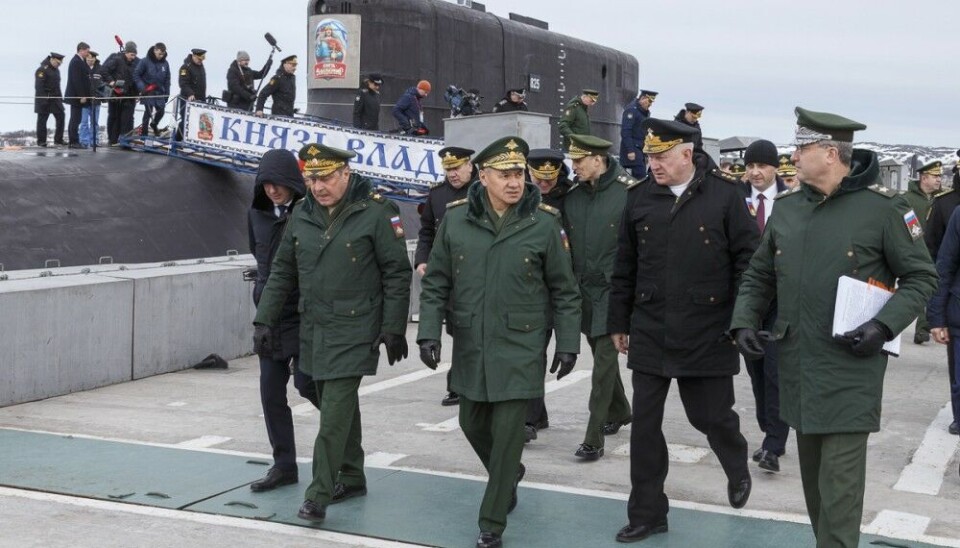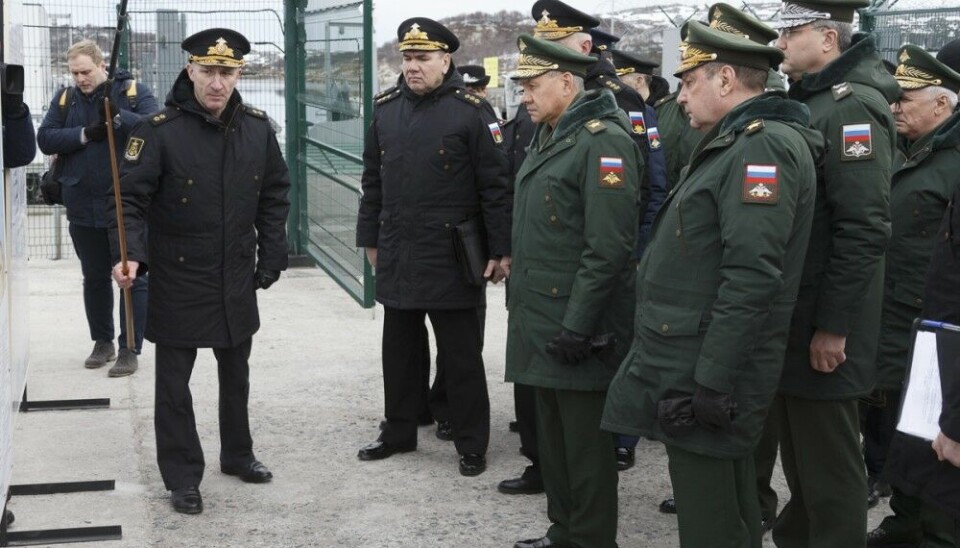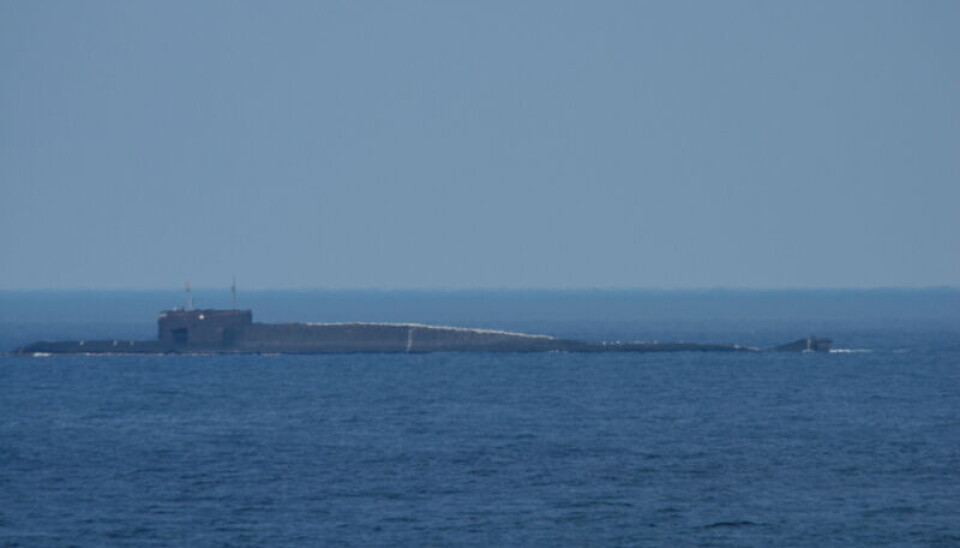
Three years without one single on-site US nuclear weapons inspection at base for Northern Fleet ballistic missile submarines
The State Department says Russia has denied the United States its right to conduct inspections under the New START Treaty.
Concerns are growing as the last remaining key arms control agreement between the two, by far, largest nuclear weapons states is weakened due to a lack of on-site verifications.
“Russia has failed to comply with its obligation to facilitate U.S. inspection activities,” the State Department’s latest Report to Congress on the implementation of the New START Treaty reads.
Not since before the COVID-19 pandemic have U.S. inspectors been in Gadzhiyevo, the Russian Northern Fleet’s base for ballistic missile submarines on the Kola Peninsula.
Here, both the Delta-IV and the newer Borei-class submarines load missiles armed with nuclear weapons before sailing out on deterrence patrols in Arctic waters.

The storage bunkers for missiles in both Gadzhiyevo and Okolnaya Bay have been substantially upgraded and expanded in recent years, the Barents Observer previously reported based on studies of satellite images.
The Russia-US treaty on reduction of strategic offensive arms was signed by the two presidents Dmitri Medvedev and Barack Obama in 2010 and limits the number of deployed warheads to 1,550 in each country. The limit on deployed missiles and bombers is set to 700 on each side.
Russia’s new Borei-class submarines, of which the Northern Fleet has got three, can carry 16 missiles tipped with likely six warheads. The number of warheads, though, on each missile can vary, and so can the number of missiles in each submarine. A fully armed Borei can sail patrols with 96 nuclear warheads.
To verify the numbers agreed in the New START Treaty, up to 18 on-site inspections are allowed every year by each party.
During COVID, Russia and the US suspended such inspections and mutually agreed on full intent to return to on-site inspections as soon as the pandemic was under control.
Then Moscow invaded Ukraine and relations with Washington rapidly deteriorated.
Dmitri Medvedev, who signed the Treaty on behalf of Russia, is today Deputy Chairman of the Security Council and is frequently warning NATO and the United States of nuclear war.
“The defeat of a nuclear power in a conventional war may trigger a nuclear war, Medvedev wrote in a post on Telegram in January.
Up North, Metropolitan Mitrofan from the Northern Fleet’s headquarters in Severomorsk last November warned soldiers against apocalypse:
“It is all being decided now. And from our prayers depend the fate of the whole world. The Lord decides the way it suits him, from what is happening on earth. Is there any point to continue history? Or is it time to bring fire and sulphur to earth and let everything burn?”
Mitrofan has his background from the Northern Fleet where he served as an officer on surface warships in the 1990ties.
With such geopolitical turmoil, mutual confidence that the New START Treaty is followed is of utmost importance. Although no reason to believe Russia or the United States are not fulfilling their obligations, questions are raised.
“Based on the information available as of December 31, 2022, the United States cannot certify the Russian Federation to be in compliance with the terms of the New START Treaty,” the State Department report says.
Director of the Nuclear Information Project with the Federation of American Scientists, Hans Kristensen, writes in an analysis together with Matt Korda that the lack of inspections does not mean Russia has deployed more nuclear weapons than is limited by the Treaty. The two, however, are worried about the future of the arms treaty itself.
“It is clear that the longer that these compliance issues persist, the more they will ultimately hinder US-Russia negotiations over a follow-on treaty, which is necessary in order to continue the bilateral strategic arms control regime beyond New START’s expiry in February 2026,” Kristensen and Korda noted.

NATO said in a statement it “call on Russia to fulfill its obligations under the Treaty by facilitating New START inspections on Russian territory.”
In Moscow, the Foreign Ministry issued a statement denying the allegations by Washington.
“We categorically reject the US representatives’ allegations about Russia’s non-compliance with the provisions of the New START Treaty,” the statement said.
The strong-worded statement continues by pointing to “that the treaty was signed in fundamentally different political realities.”
Russia’s Foreign Ministry points the finger of blame on the United States, as Russian flights are sanctioned from US airspace.
“Regarding the suspension of inspection activities under the treaty, we would like to note that it was the US activities that violated the standard inspection procedures. Washington adopted anti-Russia restrictions, which prevented the Russian Federation from holding unobstructed inspections in the territory of the United States and thereby created obvious unilateral advantages for the American party,” the Ministry said in a statement.
In Washington, the State Department rejects that Russian inspectors can’t fly to the United States.
“Russian inspectors can in fact travel to the United States via commercial flights or authorized inspection airplanes. There are no impediments arising from U.S. sanctions that would prevent Russia’s full exercise of its inspection rights under the Treaty. The United States has been extremely clear with the Russian Federation on this point,” the State Department makes clear.















